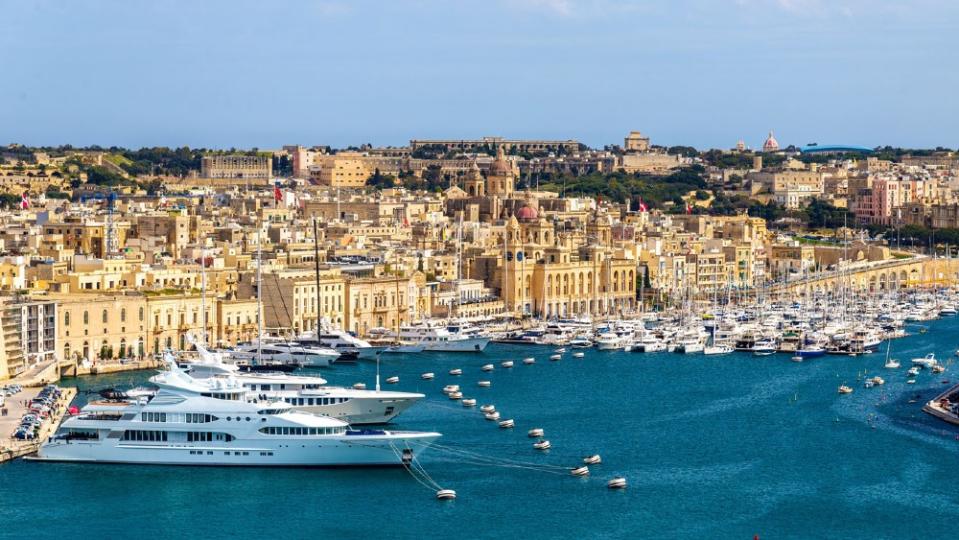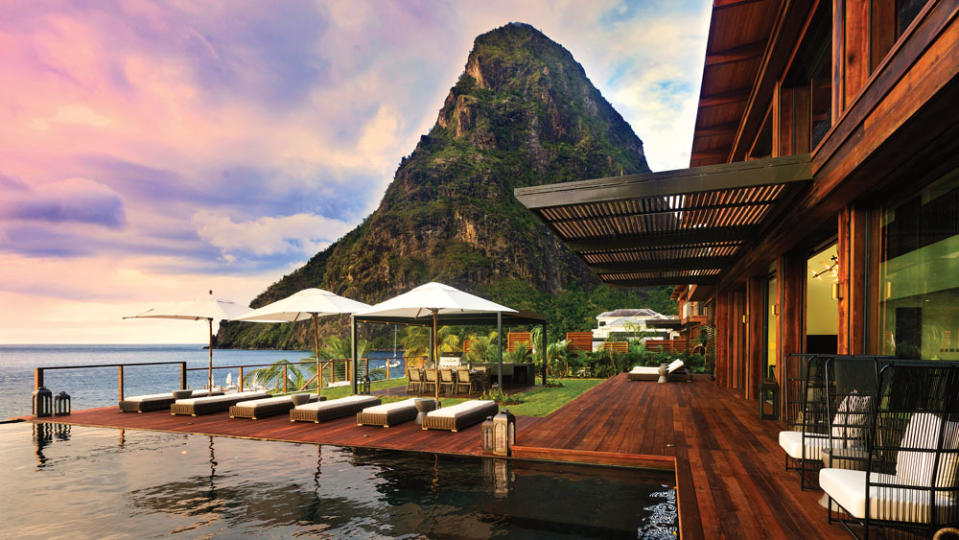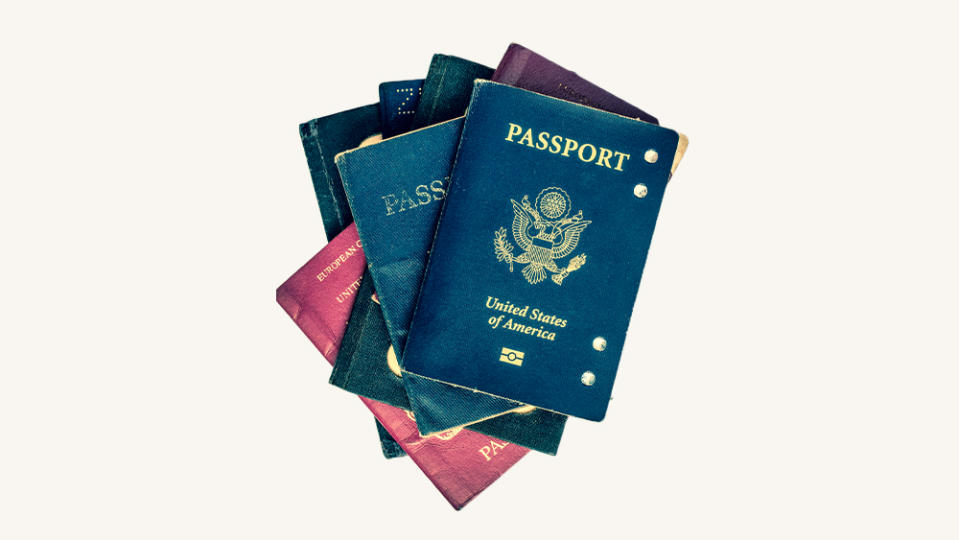Passport Collecting Has Become the Biggest Luxury Travel Flex. Here’s Why.

This March, the Egyptian Prime Minister announced a new measure aiming to stabilize its free-falling economy. To shift the weight off the nation’s $3 billion IMF debt obligation and to ease inflation, which hit 26.5 percent in January, Foreigners keen to score an Egyptian passport, he said, would only need to spend $500,000, a cut of 33 percent on the previous price. Cheaper still: Simply spend $300,000 on state-owned property and citizenship is your reward.
Egypt isn’t the first to see wealthy second passport holders as cash cows—and it won’t be the last. In an era of social unrest, political division, pandemics, dueling superpowers, and global warming, the world’s wealthiest are eager consumers of citizenships, and more nations are happy to call them customers. While some tech-futurists have turned to New Zealand bunkers and private islands, a much more common way to future-proof your lifestyle is to acquire a citizenship or three.
More from Robb Report
This $17 Million Egyptian Mansion Is Like Living in a Lavish Middle Eastern Palace
From Monaco to Malta: Where to Eat in Europe's Most Beguiling Yachting Destinations
Companies that handle paperwork for such pay-to-play citizenship programs are reporting a surge in business among wealthy Americans looking to become Caribbean or European part-time.
“The U.S. market is close to 100 times what it was five years ago,” says Paul Williams of La Vida Golden Visas. “It’s come out of nowhere, and it’s still growing.”
Andrew Henderson, who runs Nomad Capitalist, another facilitator, reports a nine-fold increase in applications for St Lucia citizenship alone from U.S. passport holders.

“When we started, about 40 percent of our clients were American, but now, it’s about two-thirds,” he adds.
The Caribbean was the traditional source of second passports, via a process that started in 1984 with a program in St Kitts and Nevis. The country just slashed costs for a limited time, with a fast-track to a passport in 60 days in exchange for $125,000 that ended in June. European passports, though, are both more useful and expensive—and the shortest route to an EU all-access pass is via Malta. It offers a pricey, but straightforward, path. Its program was launched a decade or so ago but has only recently attracted significant interest stateside, per Jon Green, a managing partner of Latitude North America, another passport-wrangler.
“When I first started in the industry 15 years ago, I wondered why an American would ever want a second passport?” he says. “But demand has skyrocketed from the U.S. in the last five or six years, so much so we opened an office there. Malta is the gold standard, and the No. 1 option.”

Of course, the second passport industry has long been associated with those keen to sidestep regulations or inconveniences attached to their original citizenship—think visa-free access to the EU’s Schengen area, for example, which is unavailable to Indian or South African citizens, or the chance to take up residence in a country with a more forgiving tax regime. Americans, of course, already have such visa-free access, and the IRS levies taxes on incomes worldwide, regardless of residency. What, then, is driving the surge in applications from the wealthiest here?
Industry experts say the pandemic proved a pivot point. The shift to remote work unlocked the option for high-net-worthers to live anywhere, notes Paul Williams: “It took us by surprise, and if you’d asked me two years ago, I wouldn’t have said we’d benefit from this. I’d never have thought it would take off in that way.”
Green agrees. Clients who might once have bought a vacation home in Miami now opt for St Lucia or Antigua. “Buying a home in the Caribbean is about diversifying outside your country, and you can also qualify for a second citizenship via that purchase,” he says.
Don’t underestimate the psychological impact of border closures, either.
“When COVID hit, suddenly everyone said, ‘I want a passport as a backup plan,'” says Henderson, who holds five passports himself (though he renounced his American one a while ago).
Even U.S. passports have limits, of course: If your business takes you regularly to the Chinese mainland, for example, a Grenada passport offers visa-free access where an American one does not. Indeed, one of Henderson’s clients was declined when he applied to Grenada, after resolving to collect all Caribbean citizenships, baseball card-style. Still, he was glad to have them all when the pandemic struck.
“He has his own jet, and he wanted to go to South Korea and only one worked to let him—from Dominica.”
Political uncertainty has been crucial, too. Both left- and right-leaning Americans have turned to the likes of Golden Visas as a backup against a country careening, in what they perceive, as the wrong direction.
“The western world has been on a downward trend for 25 years, and we want people who are honest to know they have an option,” Henderson shrugs.
America’s patchy reputation worldwide means globetrotters might increasingly prefer to transit with less controversial paperwork.

“In more volatile parts of the world, you might rather show a passport from a small, peaceful Caribbean country to check into a hotel,” says Latitude’s Green, noting that it lessens the likelihood of being targeted for robbery or worse while a guest.
That’s one major reason that the island nation of Vanuatu thinks its 7-year-old citizenship-by-investment program will appeal to Americans. The program, modeled after those in the Caribbean, is expanding, per Juris Gulbis, a lawyer who’s working with the government to make it easier. The minimum entry threshold is now investing in bonds worth AU$150,000 (around $99,000).
“People want to de-associate themselves with certain countries, and this gives businessmen the opportunity to do last minute travel without obtaining visas,” he explains.
Vanuatu citizenship used to confer visa-free travel to the Schengen area, a perk that’s been temporarily suspended in part as a response to these efforts. But Gulbis believes it should be restored soon.
Taxation is increasingly a driver, too: Countries like Malta allow residents an effective tax rate of 5 percent, and these facilitators report a rise in Americans securing second passports expressly so that they can then renounce their original citizenship—and benefit from such favorable rules. Paul Williams of Golden Visas says corporate bankers and Silicon Valley entrepreneurs are increasingly tasking him with creating a five-year plan predicated on that.
“You can’t be stateless, so that’s the first thing you need to do,” he explains, “You’ve got to be living outside the U.S. and not a U.S. citizen; say living in Thailand, but with an Antiguan citizenship? You’ve ticked both boxes.”
For some, though, the appeal of extra passports is less rational. Take the wealthy client who hired Henderson with a single instruction.
“He said ‘I want to have as many passports and residences as possible. I want everything you can get for me.’ He has hundreds of millions, so for him it was worth it.”
Henderson secured eight in total: four passports, from the likes of Malta and Ireland plus four residences around the world—Colombia, Thailand, South Korea, and Armenia, “just for fun.” Even his efforts, though, were underpinned by a serious purpose.
“He kept saying, ‘These are for the Black Swan event, because who knows what happens next?’”
Best of Robb Report
The Ultimate Miami Spa Guide: 15 Luxurious Places to Treat Yourself
The 7 Most Insanely Luxurious Spas in the World, From Tokyo to Iceland
17 Reasons the Caribbean Should Be at the Top of Your Travel Itinerary
Sign up for Robb Report's Newsletter. For the latest news, follow us on Facebook, Twitter, and Instagram.

